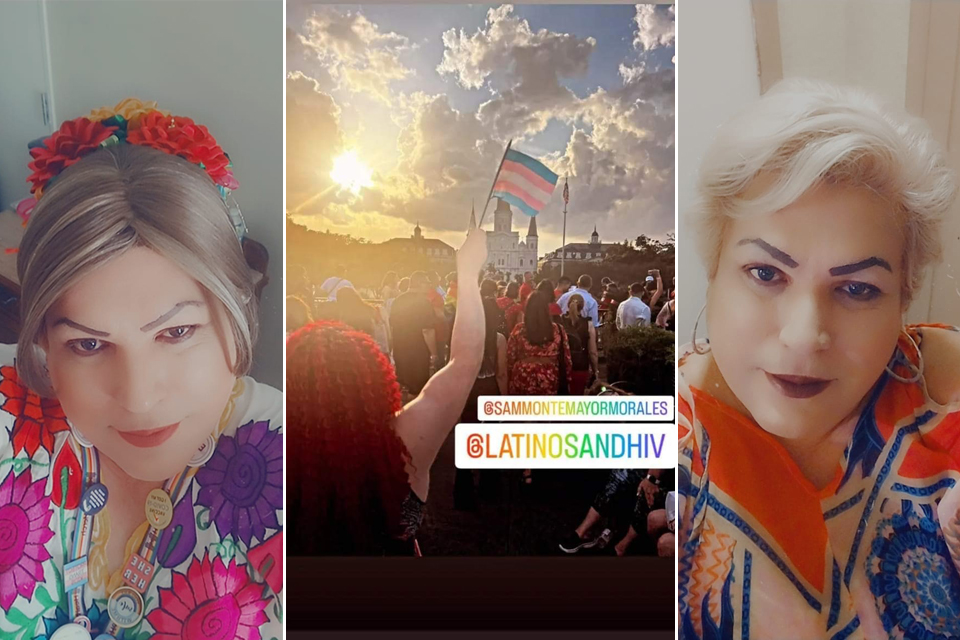The Well Project interviews Samantha Rose Montemayor, Community Advisory Board member and A Girl Like Me blogger, for our "Spotlight: Women Making a Difference" series.
How did you learn about The Well Project?
I learned about The Well Project when one of my trans role models Arianna Lint invited me to take her place on The Well Project community advisory board (CAB). When she told me what they do on a national level, I told myself I need to be part of these amazing warriors.
How long has it been part of your life?
I have been part of the CAB since June 2022.
How did you get your start in HIV advocacy?
On June 28, 2010, I was told I was HIV positive and after being stigmatized by my own family, I told myself it's not their fault and that they need education about HIV/AIDS. This is how I got started in advocacy.
Are you particularly passionate about a specific topic or demographic?
Since 2015 when I transitioned to be my authentic self and live as a proud HIV-positive trans Latina woman of color, I have focused on women living with HIV because trans women are women and both cis and trans women are the ones who are most often forgotten and not much data is recorded on them.
At what age were you diagnosed?
I was 35 years old.
When did you know that you wanted to be an advocate?
When I saw that my community was not getting the proper HIV care that we deserve.
Do you think women living with HIV face unique challenges? If yes, what are they?
Yes. Racism, discrimination, and HIV stigma.
Do you work to address those challenges through your work?
Yes. Advocacy and Education - I attend conferences and create community workshops to educate attendees on the importance of including women. Through working with Black and Brown communities, I've seen that women are not seen as important in society, there are still traditional thoughts on women being caretakers of home and spouses. The workshops focus on women from different walks to see each other as one, as women, and not separating ourselves.
What advice would you offer a woman who wants to get started in HIV advocacy?
Self-care is very important, because if we are not ok physically and mentally, we can't help others.
Any specific guidance about getting ready to publicly share her HIV status for the first time?
Never let anyone tell you when it's time to say you're positive – only you are the one who will say when you are ready. We all say our status when we are ready – no rush.
Can you describe an experience in your advocacy or personal life of which you are particularly proud?
While working at Valley AIDS Council in McAllen, Texas (a small border town in South Texas) I had the privilege to facilitate some workshops where I was able to bring cis and trans women who did transactional sex work in the Rio Grande Valley and have them understand that both groups have similar issues, and both have to see each other as one (WOMEN).
What impact has The Well Project had on you?
The Well Project has shown me the importance of sisterhood. I don't know where I would be today if it wasn't for my sisters.
Has it benefited your personal life?
Yes it has. I am now more alert when I see HIV stigma. I know I have to raise my voice to end the stigma because we have to end it first with our own internalized stigma if we ever want to win this battle.
Has it facilitated your advocacy/leadership work?
Yes, by the mentoring I have gotten from other CAB members. Sometimes I feel a lot of them don't realize that their stories make a difference and empower others without them knowing.
If you could meet any famous person, who would it be and why?
Ms. Billy Cooper is an HIV activist I saw at Biomedical HIV Summit in Las Vegas this year. She has inspired me to keep fighting for our rights.
What are you currently doing to unwind?
Taking long walks.
Where is the next place you'd like to travel to?
Cuba
What's one thing you'd like to do this year that you haven't done?
I'd like to get my Social Worker Certification so I can better help my community.
If you could learn a new skill, what would it be and why?
I would like to learn grant writing. I see the need of trans individuals to know this skill so we can get more funding for our community.




